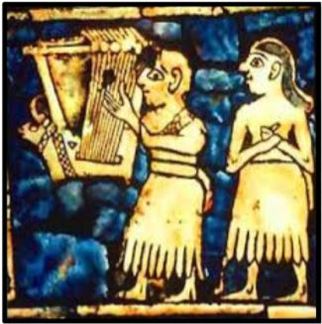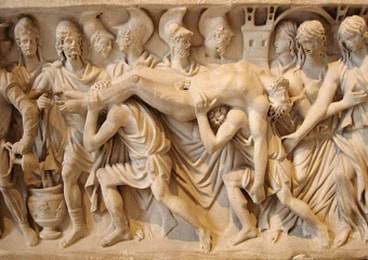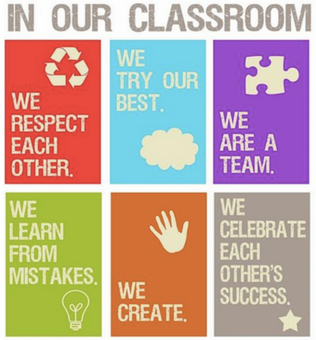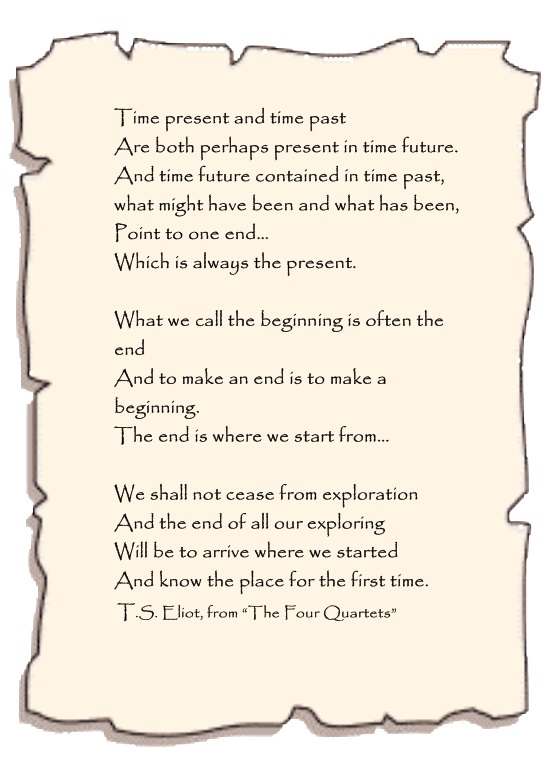6th-GRADE HISTORY2023 - 2024General Overview In your study of the ancient world this year, you will explore periods and places that remain important because they continue to influence our daily lives. Your goal this year is to gain an understanding and an appreciation of the ancient world. When you do that, you will also be better able to understand and appreciate the world in which you live. |
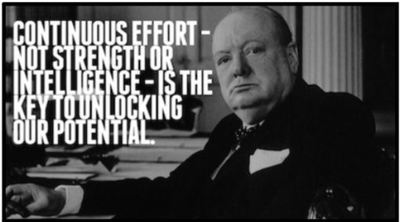
The longer you can look back, the farther
forward you can see.
Winston Churchill
"Story" is an important part of HiStory. As you progress through this year, I want you to understand that history is more than what happened in the past. By year's end, you should be able to explain how history is a part of your daily life. History, even ancient history, is your story.
With 6th grade History's emphasis on project-based learning, you will make history your story by taking part in individual and group projects that will include art, drama, music, shared technology and, of course, writing.
With 6th grade History's emphasis on project-based learning, you will make history your story by taking part in individual and group projects that will include art, drama, music, shared technology and, of course, writing.
First Semester: Let's Begin at the Beginning.
|
The story of humanity's attempts to create order, beauty, and happiness is but a brief chapter in the tale of life on Earth. For most of us, even our family histories are lost in a past that disappears at an ever quicker pace. Due to that, you will begin your 6th-grade year in History class by going back to the very beginning of what it means to be human. Together, we will travel back 4 million years to meet Lucy & Ardi, as well as other distant cousins.
|
At the end of the last ice age 10,000 years ago, people all over the globe seemed to wake up one morning, notice the change in the weather, and decide it was a nice day for a walk. Those who stopped in the land between the Tigris and Euphrates Rivers found they had all the resources they needed to thrive. And thrive they did. Not only did they eventually master agriculture, growing crops and domesticating animals, they also gave birth to Mesopotamia, the world's first civilization
|
2nd Semester: East and West
|
Ancient China is one of my very favorite units to teach. For this unit, you will study philosophy, the powerful Emperor Qin (from whom we get the name China), the far-reaching, forward thinking Han Dynasty, and the Silk Road. Your writing will focus on creating strong, well-supported opinion pieces and trying your hand at historical fiction. You will conclude this fun unit as a caravan member traveling, trading, and working to avoid disaster along the ancient Silk Road.
|
Greece
The Ancient Greek Unit is fun for so many reasons. The Greeks really put the story in HiStory. You will begin your exploration of Greek history with a look at the amazing Minoans, whose king was the subject of the Minotaur myth. You will travel the long road on the way to democracy and compare what made the two Greek rivals, Athens and Sparta, so great. For fun, you may set Homer's Iliad to music. put Socrates on trial, and compete in the Olympic games.
|
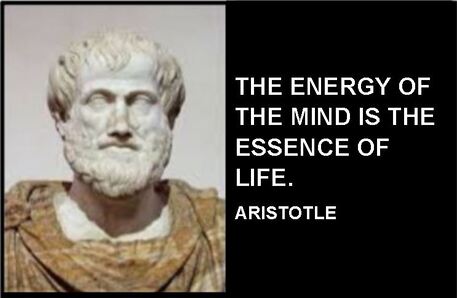
Important Note: This site is designed for students to work at their own pace, exploring the lessons that interest them the most. As you work this year, I will continue to add content, lesson reviews, and self-assessments to the site.
It will be an active year. I think it will be an exciting year filled with challenges, opportunities, and numerous successes. I am here to challenge you, to manage the pace of change, and help guide you toward success. I do love teaching, and I can't think of anything better than sharing the year with this Cape Fear Academy 6th grade class.
It will be an active year. I think it will be an exciting year filled with challenges, opportunities, and numerous successes. I am here to challenge you, to manage the pace of change, and help guide you toward success. I do love teaching, and I can't think of anything better than sharing the year with this Cape Fear Academy 6th grade class.

1. Arrive at class on time and prepared.
- The bell does not signal the beginning of a race to get to your seat. Be in your assigned seat, lessons prepared, supplies handy, and ready to work when the bell rings.
- Bring ALL materials to class and take them with you when you leave.

2. Maintain focus and attention in class.
- Listen to directions and follow them the first time they are given.
- Please make sure that your questions are on-topic and related to the subject.

3. Respect all members of the class.
- Think of others!
- Keep your hands and feet to yourself.
- Be polite in both words and deeds.
- If you are asked by me or by a classmate to help, be kind and do your best to honor that request.
- Be aware of your environment. All students - ALL students - work best in a quiet setting.
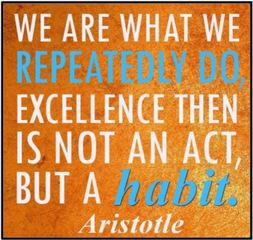
4. Be accountable for your actions.
- Use your time wisely. Put forth your best effort.
- You are the student. By doing your best, you will earn your success in this classroom.
- Follow directions. If you have a question about the directions, ask for help before you begin your work.
- Check your work before you turn it in. Make sure you have followed directions and that it is your best effort.
|
1. Acknowledge Others: Acknowledgement comes in many forms: remember someone’s name, pay a compliment, hold a door open, say please and thank you, say hello.
2. Include Others: Attitudes and words that exclude others are never funny. When it comes time to show respect and consideration to others, we do not pick and choose to whom we show respect. 3. Pay Attention: Our first responsibility when we are with others is to pay attention. Be aware of your surroundings. Only after we notice the world around us can we begin to care for it. Paying attention to our surroundings includes keeping the volume of our voice at a moderate level. 4. Speak Kindly: Words can be quite powerful. By speaking with kindness we improve the lives of those around us. Don’t make others the targets of sarcastic or embarrassing remarks. Don’t belittle their achievements, and don’t laugh at them. 5. Respect Other People’s Space: Respect the privacy of those around us. Don’t read their emails or listen to their conversations uninvited. Don’t interrupt conversations or open a closed door without knocking. |
6. Respect “No.”: Respecting another’s “No” is fundamental to respecting that person. When we fail to understand “No,” we force others to do things that they would rather not.
7. Stand Up for Yourself: When you find the behavior of others objectionable, know that you have the right to express your personal needs, values, concerns, and ideas in a respectful and appropriate way. An appropriate way to stand up for yourself includes 1) describing the behavior that you find bothersome, 2) describing how the behavior makes you feel, and 3) describing the effects of the behavior. 8. Speak Out When You See Injustice: When we speak out against injustice, we acknowledge the importance of EVERY person in our community. 9. Apologize: When we apologize, we acknowledge that we’ve done something wrong, we acknowledge the feelings of others, regret that we hurt someone else, and begin to repair the damage we may have caused. 10. Accept Responsibility: When we accept responsibility for our actions we do not place blame elsewhere. By accepting responsibility we begin the process of reconciliation. |

The two most important things you can do to earn good grades in 6th grade History are to work hard and to be kind to others. However, you will also be graded and receive feedback in the following areas:
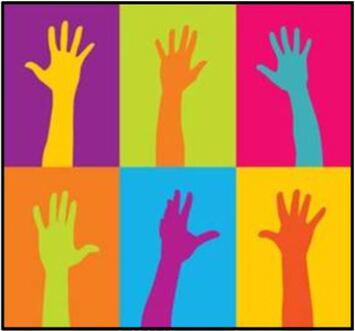
Projects: Projects account for the second largest portion of your final grade. 6th grade History includes small and large projects. Your projects will demand academic excellence, creativity and, most importantly, cooperation. Projects take good planning, goal setting, and organization.
In order to earn the highest grades in this category, keep in mind that your goal is always to help others learn. In order to meet that goal, you will use your class time productively, working to eliminate distractions and stay on your Project task. You will share your ideas and encourage the input of Project partners. And, during collaborative work, you will keep in mind that compromise is often the best way to move toward success for both you and your partners.
In order to earn the highest grades in this category, keep in mind that your goal is always to help others learn. In order to meet that goal, you will use your class time productively, working to eliminate distractions and stay on your Project task. You will share your ideas and encourage the input of Project partners. And, during collaborative work, you will keep in mind that compromise is often the best way to move toward success for both you and your partners.

Classwork & Homework: It will be rare that you are assigned Homework without having had an opportunity to begin the work in class first. Therefore, I put Classwork and Homework in the same category for grading. Both Classwork and Homework can be super important. They present challenges to how you organize your time and prioritize your work. Classwork and Homework also allow you to evaluate how successful you are at learning class material and at developing strong 6th-Grade study skills.
I expect homework to be completed and turned in on time. When homework is turned in late, I deduct 10% from your grade. Because I don’t assign much homework, turning in even one assignment late can have consequences.
In order to earn the highest grades in this category, when given time to begin assignments during class you should use your class time wisely. All of your teachers can tell the difference between a thoughtfully prepared assignment and one that was rushed to completion at the last minute. Therefore, use your Planners to help you prioritize all of your 6th grade classwork. Check your Planner daily, and begin each evening's study session with a plan for success.
I expect homework to be completed and turned in on time. When homework is turned in late, I deduct 10% from your grade. Because I don’t assign much homework, turning in even one assignment late can have consequences.
In order to earn the highest grades in this category, when given time to begin assignments during class you should use your class time wisely. All of your teachers can tell the difference between a thoughtfully prepared assignment and one that was rushed to completion at the last minute. Therefore, use your Planners to help you prioritize all of your 6th grade classwork. Check your Planner daily, and begin each evening's study session with a plan for success.
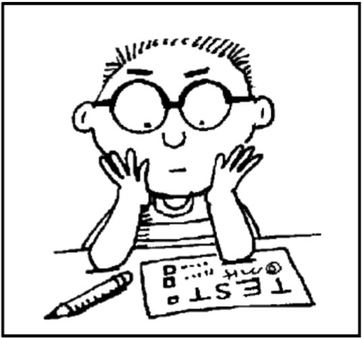
Quizzes and Tests: When given, quizzes and tests will account for a small portion of your grade. You will receive regular written and verbal feedback and you will occasionally be required to take a quiz or test. Rather than testing you on what I know, I am more interested in you showing me what you know. Therefore, you will more often demonstrate your subject knowledge with the things you create - written things, game things, tech things, model things...
The most important thing you can do to earn the highest grades in this category is to stay up to date with all of your work. You won't learn anything by "cramming" for a test. True learning is a slow process that takes place over time. To truly do well on tests, never stop looking for ways to improve upon what you already know.
The most important thing you can do to earn the highest grades in this category is to stay up to date with all of your work. You won't learn anything by "cramming" for a test. True learning is a slow process that takes place over time. To truly do well on tests, never stop looking for ways to improve upon what you already know.
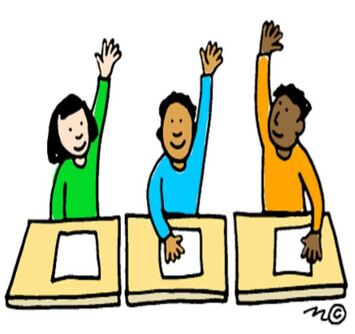
Feedback: I will give you both formal and informal feedback on your progress and standing in class. Informal feedback will include daily comments and, as needed, one-on-one meetings. Formal feedback will include a variety of assessment types on assignments, including homework, quizzes and tests, and projects. Those assessments may be expressed as numbers or as placement on a scale. Often the scales are linked to assignment rubrics.
Late Policy: I deduct 10% for late assignments. I know, however, just how busy you are. Because of that, you will find that I am much more willing to give extensions on assignments if you contact me in advance. Don't save your request until the very last minute. Additionally, if you know you will miss class, please let me know about your planned absence. If your work is late due to an excused absence or illness, please turn it in no later than one day after your return to school. For whatever reason you miss school, whether it is illness, travel, or family commitments, you should make it a point to check what class work you miss by either asking a classmate or looking on Google Classroom.
Most assignments will be posted on our Google Classroom well in advance of their DUE Date. You will also have class time to at least begin assignments. Your work, therefore, should be completed on time. Additionally, most of your work will be turned in online. So, complete it. Review it. Turn it in. Those three easy steps will lead to your continued success.
We will go over how to create Google docs and organize them in folders on your Google drive during class. While I am, of course, happy to help you organize your work, as a 6th-Grade student, it's up to you to stay organized. Because you will end up with numerous assignments in your class folders, it's SUPER IMPORTANT that you double-check your work to make sure that the correct assignment is turned in to the right class.
Earning an A+: The difference between ordinary and extraordinary is that little "extra."
In order to earn an "A+" in History class, I ask students to demonstrate that they are strong, independent learners. Doing so requires the completion of additional work. You can think of that work as the "+" in A+. The work they choose to do is entirely up to them. And, it is optional. An A+, however, requires it.
Late Policy: I deduct 10% for late assignments. I know, however, just how busy you are. Because of that, you will find that I am much more willing to give extensions on assignments if you contact me in advance. Don't save your request until the very last minute. Additionally, if you know you will miss class, please let me know about your planned absence. If your work is late due to an excused absence or illness, please turn it in no later than one day after your return to school. For whatever reason you miss school, whether it is illness, travel, or family commitments, you should make it a point to check what class work you miss by either asking a classmate or looking on Google Classroom.
Most assignments will be posted on our Google Classroom well in advance of their DUE Date. You will also have class time to at least begin assignments. Your work, therefore, should be completed on time. Additionally, most of your work will be turned in online. So, complete it. Review it. Turn it in. Those three easy steps will lead to your continued success.
We will go over how to create Google docs and organize them in folders on your Google drive during class. While I am, of course, happy to help you organize your work, as a 6th-Grade student, it's up to you to stay organized. Because you will end up with numerous assignments in your class folders, it's SUPER IMPORTANT that you double-check your work to make sure that the correct assignment is turned in to the right class.
Earning an A+: The difference between ordinary and extraordinary is that little "extra."
In order to earn an "A+" in History class, I ask students to demonstrate that they are strong, independent learners. Doing so requires the completion of additional work. You can think of that work as the "+" in A+. The work they choose to do is entirely up to them. And, it is optional. An A+, however, requires it.

